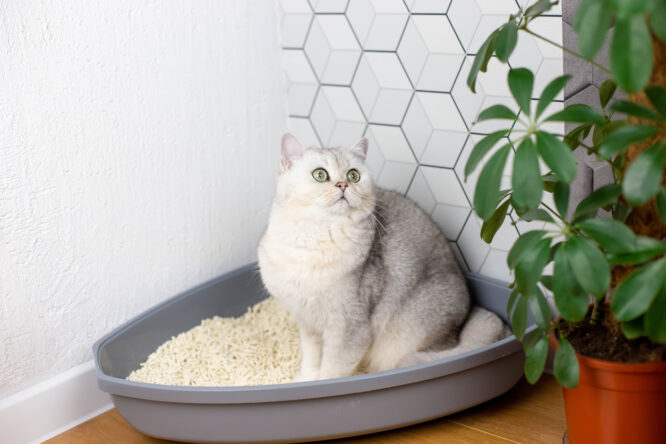Bringing a new kitten home is exciting, but it can also feel a bit overwhelming for both of you.

Everything’s new for your little one, and it takes time to adjust. With a bit of patience, some planning, and lots of gentle encouragement, you can help your kitten settle in and start to feel right at home. If you’re a first-time pet owner and not sure how to proceed for the best, doing these things will make the transition a whole lot easier for everyone.
1. Set up a quiet space just for them.

When you first bring your kitten home, they’ll likely feel overwhelmed by all the new sights, smells, and sounds. Giving them a quiet, enclosed space, such as a spare room or cosy corner, helps them feel safe while they get used to their surroundings. Fill it with their essentials: food, water, litter box, and a soft place to curl up.
This little haven will become their base for the first few days. Let them explore it at their own pace, and avoid flooding them with too many people or activities straight away. Once they’ve grown comfortable in their space, they’ll naturally start to venture out and explore the rest of the house in their own time.
2. Keep everything calm and low-key at first.

It’s tempting to show off your new fluffball to friends and family immediately, but too much stimulation early on can stress them out. Keep noise levels down and avoid loud TV, vacuuming, or sudden movements during those first few days. The calmer the environment, the more confident they’ll become.
Kittens pick up on your energy too, so speaking softly and moving slowly around them goes a long way. It helps them feel secure and reassured, especially while they’re figuring out if this big new world is safe. Keeping things mellow at the start sets the tone for a smoother adjustment overall.
3. Introduce them to the rest of the house gradually.

Once they’ve settled into their safe zone, start letting them explore the rest of the house one room at a time. Too much space too soon can feel intimidating and may make it harder for them to find their food, litter box, or you when they’re nervous. Slow introductions build their confidence without overwhelming them.
Let them lead the way. Leave doors open to new areas and give them time to sniff, climb, and get their bearings. If they run back to their safe space now and then, that’s totally normal. Exploring in little chunks helps them learn the layout and feel secure with every new area they discover.
4. Give them consistent routines from day one.

Kittens feel more at ease when they know what to expect. Try to feed them at the same times each day, keep their litter box in one spot, and avoid moving things around too much early on. Familiarity helps them relax and settle in more quickly.
Even small routines like morning playtime or bedtime cuddles can become comforting anchors in their new world. When their environment starts to feel predictable, they begin to trust it more, and that’s when you’ll see their playful, curious side start to blossom.
5. Keep their litter box in an easy-to-reach spot.

It might not be the most glamorous part of kitten care, but litter box placement really matters. In the early days, keep it close to their safe space and make sure it’s always clean. If it’s too far away or hard to access, they might get confused or stressed, and accidents can happen.
Avoid putting it near noisy appliances or in high-traffic areas where they might feel exposed. A quiet corner works best. Once they’ve got the hang of it and start exploring more freely, you can slowly move it to your preferred spot—just do it in stages so they don’t get disoriented.
6. Offer places to hide and climb.

Kittens feel safer when they’ve got options: somewhere to hide when they’re nervous and something to climb when they’re curious. A cardboard box, a covered cat bed, or even a blanket draped over a chair gives them a hiding place they can retreat to whenever they need a break.
At the same time, giving them vertical space like a cat tree or shelf lets them explore from a higher perspective, which boosts confidence and satisfies their instincts. A good balance of hiding spots and climbing spots can help them feel like the house is theirs to navigate, not something to be scared of.
7. Use interactive toys to build trust and confidence.

Play is one of the easiest ways to bond with your kitten and help them feel more relaxed. Wand toys, feather teasers, or anything that mimics prey behaviour will grab their attention and draw them out of their shell. Keep sessions short at first, and stop before they lose interest or get overstimulated.
As they grow more comfortable, you’ll notice them getting bolder and more playful. These games build positive associations with you and their new environment. Plus, it helps burn off energy in a fun, safe way, and a tired kitten is usually a happy, cuddly one.
8. Keep introductions to other pets slow and steady.

If you’ve got other pets, especially older cats or dogs, introduce them gradually and always under supervision. Let your kitten get used to their scent first; swapping blankets or allowing them to sniff under a door can be helpful early on. Rushing things can lead to stress or even conflict.
Once they’re ready to meet face-to-face, keep it brief and controlled. Don’t force interaction; let them observe each other from a distance and go at their own pace. Over time, short, calm meetings will help them feel more secure and eventually become comfortable co-existing, or even becoming pals.
9. Let them come to you on their terms.

It’s tempting to scoop them up constantly and smother them with love, but kittens need a little space to decide when and how they want affection. If you let them make the first move, they’re more likely to feel safe and build trust with you on their own timeline.
Try sitting on the floor near them while reading or watching something quietly. This gives them the chance to approach without pressure. Most kittens are naturally curious and will eventually crawl into your lap or nuzzle your hand, and it means so much more when it’s on their terms.
10. Don’t stress if they hide at first.

Hiding is a totally normal response to change. Many kittens will tuck themselves away behind the sofa or under the bed while they take everything in. It’s their way of self-soothing, and it doesn’t mean anything is wrong, just that they need time to feel brave enough to come out and explore.
The best thing you can do is give them space and avoid dragging them out of their hiding spot. Instead, offer treats or toys nearby and talk to them softly so they know you’re around. Bit by bit, they’ll emerge when they feel ready, and usually with a lot of curiosity to follow.
11. Use soft, reassuring voices around them.

Kitten ears are sensitive, and loud or unpredictable noises can be really unsettling. Using a soft, calm tone when you talk to them helps them associate your voice with safety and comfort. It also makes it easier to build a bond without overwhelming them.
Even if you’re just chatting to them while doing chores, the sound of your voice becomes familiar and soothing. It might feel silly at first, but talking to your kitten helps them learn your rhythms and get used to you, and that goes a long way in helping them settle.
12. Handle gently and often, but don’t overdo it.

Getting your kitten used to being touched is important, especially for future vet visits or grooming. Gently stroking them, touching their paws, and picking them up for short periods helps them feel comfortable with human contact. Just keep sessions short and sweet to start with.
If they wriggle or seem unsure, put them down calmly and try again later. Over time, they’ll learn that being handled isn’t scary, especially if it’s followed by a treat or praise. Building that positive connection makes things easier for both of you in the long run.
13. Stick to the same food at first, then transition slowly.

Switching food too soon can upset your kitten’s stomach and make them even more stressed. Stick with whatever they were eating before you brought them home, at least for the first week or two. Once they’ve settled in, you can gradually introduce new food if needed by mixing it in slowly over several days.
This gentle transition gives their digestive system time to adjust and helps avoid unpleasant surprises. Plus, sticking to the familiar gives them one less thing to worry about while everything else is changing. It’s a small thing, but it can make a big difference to their comfort.
14. Shower them with patience (and treats).

Every kitten adapts at their own pace, and it’s normal for things to take time. Some will be bounding around the house within hours, while others need a full week before they feel ready to come out of hiding. The most helpful thing you can do is be patient and keep showing up with kindness (and maybe a few treats).
Positive reinforcement works wonders—gentle praise, toys, or food rewards help them associate you with good things. And even if progress feels slow, each little milestone—a purr, a playful bat, a sleepy cuddle—means you’re doing it right. Settling in is a process, and your calm presence is the biggest comfort of all.




